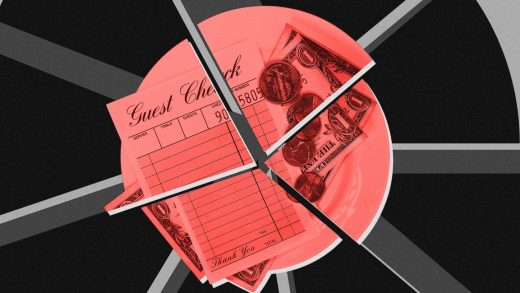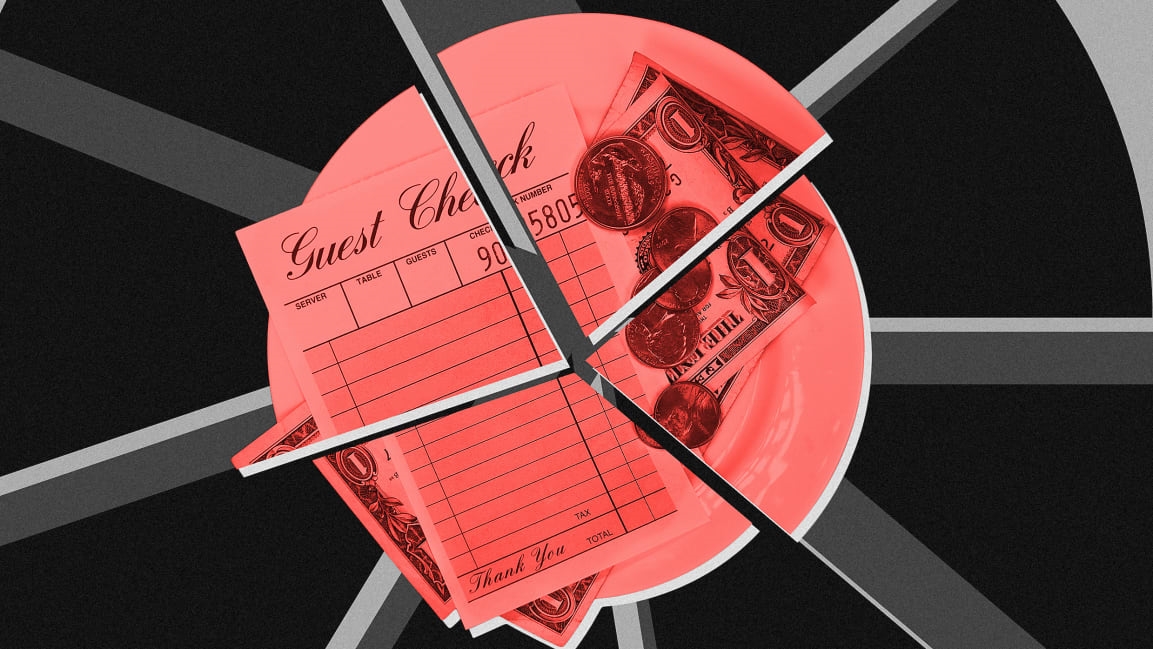A last-minute Trump administration rule could lower restaurant workers’ wages by $700 million a year
Less than 30 days before Trump is due to leave office, his Labor Department has imposed a rule that may significantly affect the wages of restaurant workers. By one estimate, it may collectively cost tipped workers more than $700 million a year.
The new Tip Regulations under the Fair Labor Standards Act rolls back the so-called 80/20 rule, which previously required that 80% of the time a worker who makes the tipped minimum wage (which is lower than the regular tipped minimum wage) spends should be dedicated to tipped work, principally interacting with customers. In a published press statement, the Labor Department’s wage and hour administrator, Cheryl Stanton, said the rule was instated partly because it “provides clarity and flexibility for employers.”
But cutting this protection for workers has the potential to severely limit a tipped workers’ wage, according to Heidi Shierholz, director of policy at the Economic Policy Institute (EPI), who previously served as Obama’s chief economist in his Labor Department. In an EPI release, she said that this “immense loophole” for employers could cost $700 million in servers’ wages annually—and that’s a pre-COVID-19 figure, which stands to be higher now.
Due to in-house dining cutbacks during the pandemic, many tipped workers are serving less and doing other tasks such as assembling takeout orders. Natasha , a restaurant server in midtown Manhattan we spoke to (we have chosen to omit her last name and the restaurant’s name to ensure job safety) says she’s cooking, cleaning, and even doing electrical work. “I’d say the fact that I work primarily for tips is almost insulting,” she says. “I would say that my job right now is almost entirely non-tipped work.”
The new rule is vague about the amount of time servers would have to perform non-tipped duties, only calling for “reasonable” time.
The directive also allows employers to implement “tip sharing,” whereby gratuity earned by tipped workers, usually servers, can be distributed among non-tipped workers, such as dishwashers and cooks, who are often “excluded from participating in tip pools in the past,” Stanton said in the department’s release. This pooling of tips is already legal in many states and will be permitted only if servers make the standard minimum wage for food workers, which varies to a great degree by state and city. Still, it’s a way for employers to skirt raising wages for kitchen staff.
When asked about the reasons for implementing the rule and the criticisms, a Department of Labor spokesperson simply sent a list of FAQs on tips.
“The Trump administration opting, in its last 29 days and during a pandemic, to take more than $700 million out of the pockets of service workers is an emblematic parting blow from this administration to the working people of this country,” EPI’s Shierholz stated in the release. It’s also not the fullest extent of what the Trump administration aimed to do; as early as 2018, it wanted to allow tips to also be shared with managers and supervisors. It walked that back after a compromise was reached between Senator Patty Murray and then-Labor Secretary Alex Acosta.
But the directive won’t take effect for another two or so months—at which point the Biden administration could potentially delay it or replace it with its own preferred guidance.
(27)



